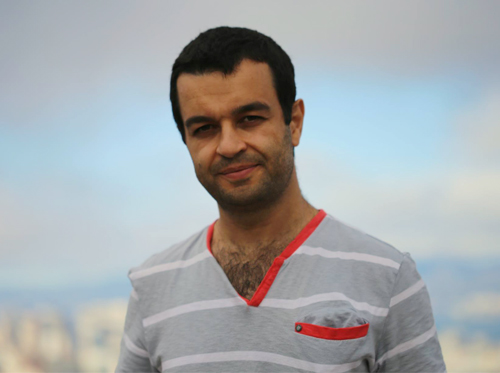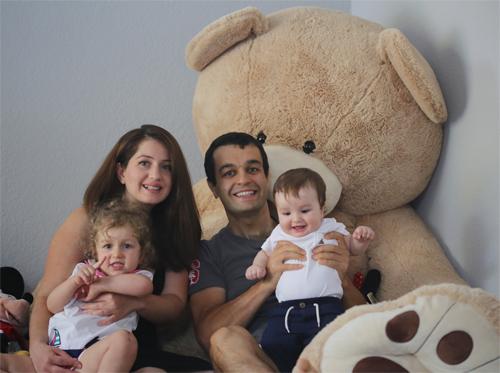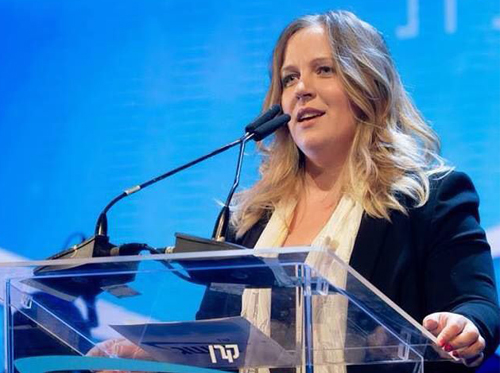-

Ara Avanesyan
-

10:26 | 17.11.15 | Interviews | exclusive 19739
Ara Avanesyan: Armenians mainly work on technology in Google
GDG (Google Developer Group) DevFest Armenia 2015 took place in Tumo Center for Creative Technologies on November 1.Google representatives were the speakers of the event hosting more than 200 people.
Itel.am talked to Ara Avanesyan, Software Engineer of Google Now team.
Before Google he worked in Microsoft’s Bing search engine department for 4 years.
- You spoke on “Work Process in Big Companies” at DevFest Armenia 2015. How urgent is it for the Armenian audience?
- I was speaking about work in big companies, job interview nuances and other themes. Years ago, when I was still working in Yerevan I decided to apply for a vacancy in Microsoft. I sent my resume and there was no response for a long time. I was kind of upset about it, as showing that resume to any employer in Armenia would at least guarantee an interview. At the same time, I decided not to apply for other vacancies in Microsoft as I had already applied for one.
It was like a curtain that was closed. I was on one side and the big corporation was on the other. I never realized that Microsoft is not just one company but a corporation that consists of different big and small teams. If one team needs a specialist, it has no idea what vacancies there are in other teams at the same office.
The aim of my speech in Yerevan was to open the curtain a little bit: show exactly how big companies work in reality.
- And how exactly do the big companies work in reality?
- I will answer to the question in terms of job interviews. I was recently participating in a two-day training on conducting interviews in Google.
Generally, Google has a unique culture of conducting interviews. Our coach said something which is very important: “The interview is a chance for a person to show excellent qualities”.
Unfortunately, this chance is almost never given in Armenia. There is a lot of pressure on people during interviews here. The interviewers try to show that they know more, which may be satisfactory for them but the company loses a good person and a good specialist. It would be better if interviewers thought a little about it.
- Do you follow Armenian startup development?
- I visit Armenia every year. Yes, there is development. I notice through Facebook or talking to my friends here that a lot of them are involved in the process of realizing some kind of creative ideas and I’m happy for that. I used to work on startups myself.
- Google often announces internships. How useful can they be for Armenian specialists?
- The competition is severe here. Mainly top universities’ graduates who have already reached some success win the struggle. Internships offered from corporations are indeed big opportunities and if there’s a chance, one should take them.
- Do you know a lot of Armenians working at Google?
- Armenians working at Google are mainly those who left Armenia long time ago or are from Diaspora. There are Armenians that hold big positions in the company, but they aren’t Armenians from Armenia. Armenians mainly work on technology at Google.
- In your opinion, when will Google decide to open a regional office?
- I think big companies are looking for numerous well-qualified specialists. Unfortunately, when a person becomes a good specialist in Armenia, he/she goes abroad. So, collecting numerous well- qualified specialists can be tricky. Armenia needs constantly refreshing flow of new potential. It would be better if Armenian programmers graduated from high-class universities.
- Do you think they don’t get educated well in Armenia?
- I’m not very well informed but to my knowledge-not so much. Non practical knowledge is prized more highly in education here. The time that can be used to help students specialize in one particular area is spent on giving a broad education.
The education system in Armenia is broad. I graduated from Yerevan State University, Faculty of Informatics and Applied Mathematics. What I received was mainly horizontal education which is not bad but there isn’t as much demand for it abroad as for specialized education per se.
- But your example states that one can work for Google by getting educated here. What will you advise to people that want the same?
- Always work on yourself and move forward, develop yourself. Programming needs constant progress as it changes every second. I would advise not to sit and prepare for job interviews specifically. The best way of preparing is working, that helps to constantly strengthen the knowledge, develop and gain real experience which is priceless both for interviews and for the future career.
Narine Daneghyan talked to Ara Avanesyan

17:29 | 24.09.25 | Articles
Jacopo Losso on Cross-Border Investments and Why Armenia Attracts Angels








